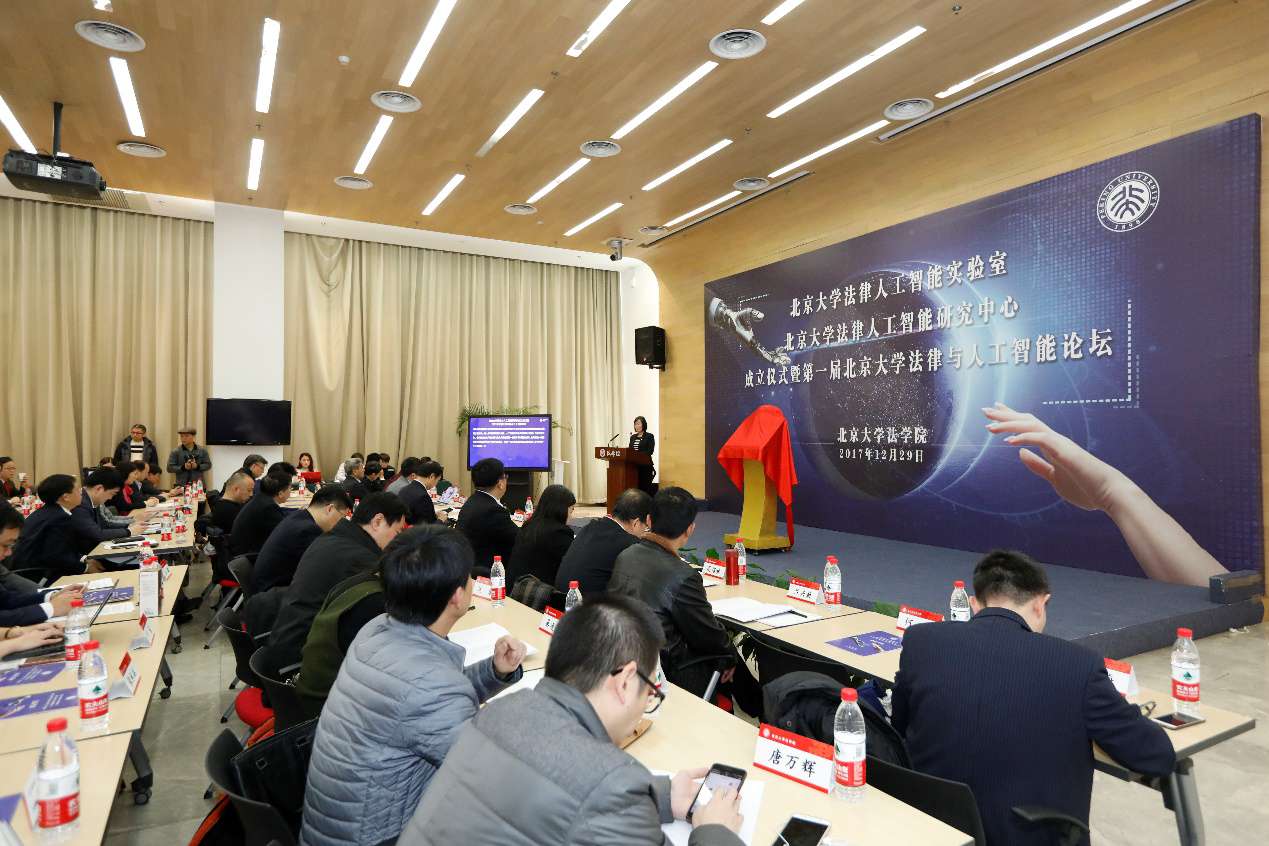As AI goes to law school, the legal profession goes to AI
- By Eugene Clark
 0 Comment(s)
0 Comment(s) Print
Print E-mail China.org.cn, January 21, 2018
E-mail China.org.cn, January 21, 2018
Perhaps the largest obstacle to the innovation and adoption of new technologies is the creation of a legal infrastructure that will support such change. Universities of the 21st century have a major role to play in uniting with tech companies, law firms, government, business and other stakeholders to conduct research on the legal challenges and framework for new technologies to be piloted, implemented and regulated.

An encouraging example of such a relationship occurred on Dec. 29 of last year when Gridsum Holding Inc., a provider of artificial intelligence solutions and cloud-based big-data analytics, announced a partnership with Peking University Law School. The broad goal of the new Peking University Legal AI Lab and Research Institute is to promote the development of AI and its many applications across Chinese society while at the same time ensuring a leading role for the country in this rising industry.
The initiative makes strategic sense for China. With an aging population and the need to move up the value chain in economic models, China needs to identify the technology markets of the future and assert itself as a major player. Business models based on China's ability to provide cheap labor are rapidly declining. The Philippines, Mexico, Bangladesh, Vietnam and many countries on the African continent are among those that can now provide even cheaper labor as education, wages and working conditions in China continue to improve.
Moreover, the Legal AI Lab serves as a good example of how all institutions, including law schools, are transitioning from an industrial focus to one befitting the information age. While universities have long been a significant source of research, law schools are not usually considered noteworthy in this regard. Their emphasis has traditionally been on stability and looking to the past. In a 21st century economy of constant change, law curricula must be future-focused, with greater priority given to design thinking and technology literacy. Law schools specifically and universities generally must do more to embrace technology, in the same way that the legal profession itself is being forced to do.
As "consumers" of higher education, students too are increasingly demanding that their education prepare them for careers of the future. While routine, lower-order professional work is increasingly being replaced by technology, many intermediary jobs are being flattened or eliminated. Partnerships with leaders in emerging technologies, such as AI, present excellent opportunities for students to gain relevant experiences and skills that will serve as entry points to stable careers.
This signals that the old "ivory tower" model of universities, distant and separated from the rest of society, is rapidly ending. In many parts of the world, academics have seen their purpose mostly as providing a critique of the outside world. Today, however, we need universities to be able partners in shaping and designing a better civilization rather than merely reacting from a distance to developments in technology, government and business.
Perhaps most importantly, there is the larger question of what remains for the law in a future society where technology increasingly governs our behavior while also monitoring compliance. The Gridsum-Peking University partnership points to the important role that law schools play. Those in the legal profession must cooperate with technology specialists and other stakeholders to design a system of regulation that balances all relevant interests, so that the wider community is benefitted with harms minimized.
Eugene Clark is a columnist with China.org.cn. For more information please visit:
http://91dzs.com/opinion/eugeneclark.htm
Opinion articles reflect the views of their authors only, not necessarily those of China.org.cn.





